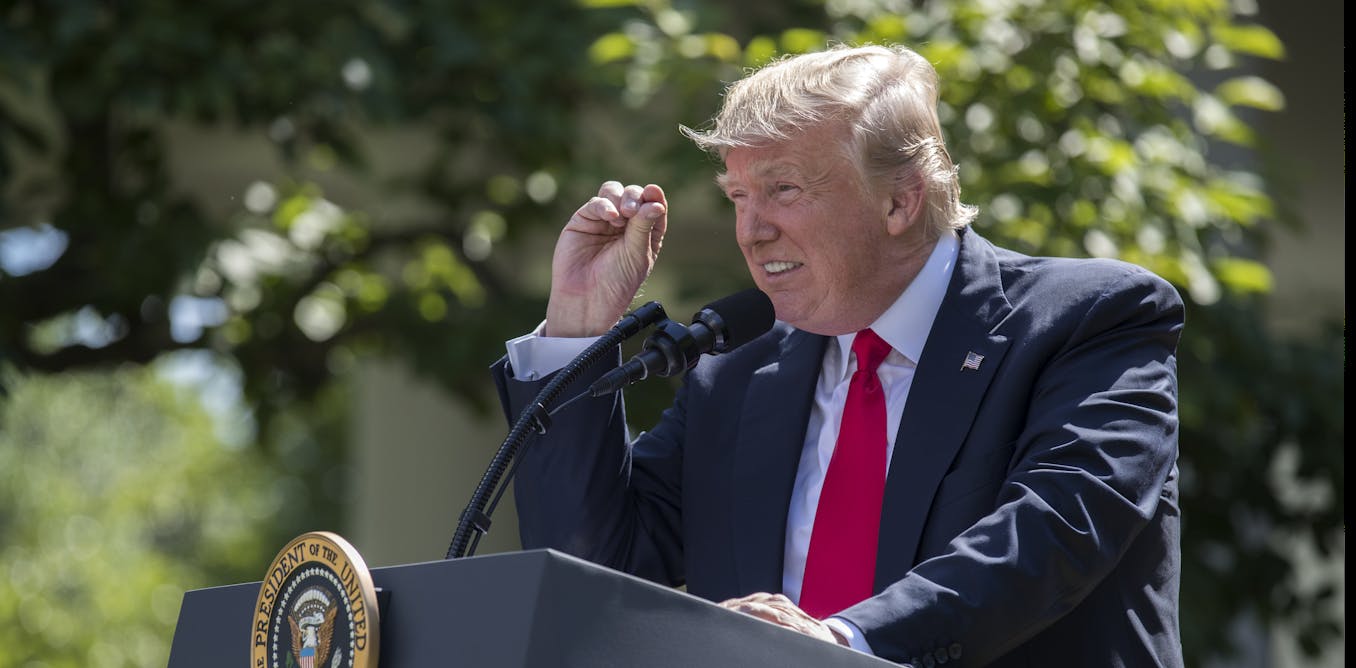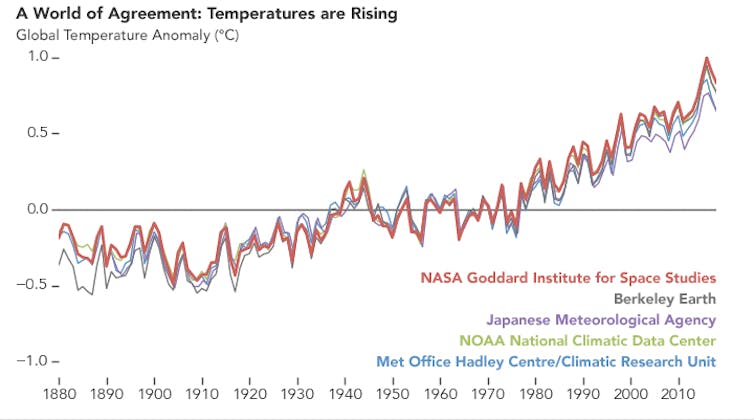THE CONVERSATION

US President Donald J. Trump announcing that the US will withdraw from the Paris climate accord, June 1 2017. PHOTO/EPA/Shawn Thew
While much of the world now recognises the need for immediate action, there are still those who question the scientific consensus on climate change and deter efforts to tackle it. As might be expected, they have the attention of US President Donald Trump and his Republican administration.
The Heartland Institute’s International Conference on Climate Change was held at the Trump International Hotel in Washington DC on July 25 2019. The Heartland Institute considers itself one of “the world’s leading free market think-tanks”, which “promotes free market solutions to social and economic problems”. It’s perhaps best known for its climate scepticism.
Discussions at the annual event include disputing scientific observations on climate change, criticising “climate alarmists” and promoting fossil fuels. As the choice of venue might suggest, the arguments made here seem to overlap with what the president and the ruling Republican Party has previously said on climate change.

Temperature data shows rapid warming in the past few decades. According to NASA data, 2016 was the warmest year since 1880, continuing a long-term trend of rising global temperatures. NASA’s Earth Observatory
From my background studying criminal behaviour, I found something striking about the way Trump justifies inaction on climate change. Through his own words, the president’s arguments mimic patterns in criminal behaviour that criminologists call “techniques of neutralisation”.
Criminologists contend that criminals use techniques of neutralisation
to help deny or justify a crime they have committed. These five
techniques were first defined in 1964 from the types of arguments given by young people in the criminal justice system when justifying their actions.
- Denial of responsibility – it is not the offender’s fault.
- Denial of injury of harm – the crime does not cause significant harm or may have positive results.
- Denial of victim – there is no clear victim.
- Condemnation of the condemner – the offender criticises the criminal justice system to avoid criticism of the offender.
- Appeal to higher loyalties – deviant behaviour was in aid of a greater good or to benefit someone else.
Sabrangindia for more